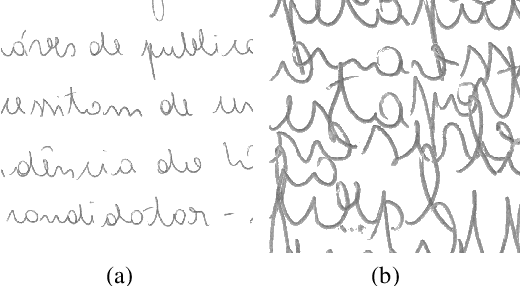Single-sample writers -- "Document Filter" and their impacts on writer identification
Paper and Code
May 18, 2020



The writing can be used as an important biometric modality which allows to unequivocally identify an individual. It happens because the writing of two different persons present differences that can be explored both in terms of graphometric properties or even by addressing the manuscript as a digital image, taking into account the use of image processing techniques that can properly capture different visual attributes of the image (e.g. texture). In this work, perform a detailed study in which we dissect whether or not the use of a database with only a single sample taken from some writers may skew the results obtained in the experimental protocol. In this sense, we propose here what we call "document filter". The "document filter" protocol is supposed to be used as a preprocessing technique, such a way that all the data taken from fragments of the same document must be placed either into the training or into the test set. The rationale behind it, is that the classifier must capture the features from the writer itself, and not features regarding other particularities which could affect the writing in a specific document (i.e. emotional state of the writer, pen used, paper type, and etc.). By analyzing the literature, one can find several works dealing the writer identification problem. However, the performance of the writer identification systems must be evaluated also taking into account the occurrence of writer volunteers who contributed with a single sample during the creation of the manuscript databases. To address the open issue investigated here, a comprehensive set of experiments was performed on the IAM, BFL and CVL databases. They have shown that, in the most extreme case, the recognition rate obtained using the "document filter" protocol drops from 81.80% to 50.37%.
 Add to Chrome
Add to Chrome Add to Firefox
Add to Firefox Add to Edge
Add to Edge